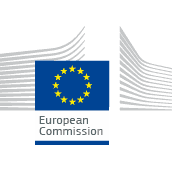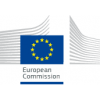
Social orientation of newly arrived third-country nationals through involvement of local communities, including mentoring and volunteering activities
Deadline: Jan 30, 2020
CALL EXPIRED
CALL EXPIRED
Social Affaires and Inclusion
Gender Equality
Asylum, Migration and Integration Fund (AMIF)
Aid to Refugees
Education and Training
EU Aid Volunteers
Transnational cooperation
Violence
Migrants and Refugees
Scope:
Background
Upon arrival and in the very early stages of the integration process, migrants often encounter difficulties in their social orientation, i.e. in adapting to a new local, social and administrative environment, building a social network, as well as in dealing with authorities, public and private services or handling paperwork. These difficulties can slow down the integration process and affect its outcome. The involvement of the local community can facilitate overcoming these difficulties through, for example, mentoring programmes and/or volunteering activities to provide support to third-country nationals in areas such as knowledge of the new local environment, “ways, customs and habits” of the new society, basic language skills, dealing with administrative procedures in the field of health, housing, education, etc. The activities will aim at facilitating the early integration steps of newly arrived migrants and also foster exchanges between migrants and the receiving society, thus contributing to mutual understanding, knowledge and building of a more cohesive community. These activities will involve the local community (individuals and/or families) and may also support them.
Objectives
- Develop activities involving local communities, including mentoring and/or volunteering, to facilitate the social orientation and active participation of migrants;
- Support the social orientation of both migrant women and men, including through provision of information about all the aspects of daily life;
- Strengthen the sense of belonging to the new society and foster an active role in the community at local, regional, national and/or EU level;
- Promote meaningful interactions between the local population and newly arrived migrants;
- Facilitate the transfer of experience, knowledge and practices between the partners of the project to develop more effective actions;
- Facilitate the dissemination of experience, knowledge and practices beyond the partners of the project to develop more effective actions, including by evaluating the impact of the actions developed.
Actions
- Activities to support the social orientation of newly arrived, through the involvement of local communities including mentoring and/or volunteering activities, designed on an equal basis, for the benefit of all involved. Migrants, especially when already settled in the local community, can also be involved in the activities.
- Activities to strengthen the sense of belonging to the new society and foster an active role in the community at local, regional, national and/or EU level;
- Activities to promote meaningful interactions between migrants and the receiving society;
- Trainings, workshops, mutual learning activities aiming at transferring and sharing knowledge on supporting the social orientation of both women and men newly arrived, strengthening their sense of belonging and promoting exchanges and interactions between the receiving society and migrants facilitating the integration of newcomers as well as developing and sharing the knowledge on how to pursue these objectives in an effective manner, e.g. by evaluating the impact of the actions developed.
- The projects and activities need to cover a significant range of relevant areas of daily life for the participants, such as:
- everyday problem solving;
- access to basic services, including health services and housing;
- education and training for children (early care and childhood education, schools, school or pupils’ clubs or events, non-formal education institutions such as youth clubs, sports clubs, or cultural groups for children) and adults (classes, cultural groups);
- participation to local community, to social, cultural or sports activities (e.g. taking part, coaching or going to watch), including environmental activities (e.g. national organisations, local conservation groups, preservation societies, local recycling practices).
- building a social network and making friends.
- The projects and activities need to take into account the specific situation of groups of special concern, such as children, parents with children, women, the elderly, illiterate or semi-literate persons, refugees, people arriving in the context of family migration, or victims of violence who need specific information tailored to their needs.
Outcomes
- Improve the social orientation of both women and men newly arrived involved in the projects and/or show and evaluate how the support provided through the project contributed to this objective;
- Strengthen the sense of belonging to the new society and support their active role in the community at local, regional, national and/or EU level and/or show and evaluate how the national/transnational actions contributed in this regard;
- Promote exchanges and interactions between the receiving society and newly arrived migrants facilitating the integration of newcomers;
- Improve transnational cooperation to facilitate the transfer of experience, knowledge and practices (good and bad) related to the social orientation of third-country nationals within the partners of the project, and achieve more effective practices and initiatives;
- Facilitate the dissemination of experience, knowledge and practices beyond the partners of the project;
- Improve knowledge on how to support the social orientation of both women and men newly arrived;
- Improve knowledge on whether and how the facilitation of interactions between the native population and migrants is associated with more positive attitudes towards migrants and improved social integration
Further considerations applicable to this topic
Applicants should consider and clearly detail in their application how the different domains and relevant actors are to be involved. To attain the objectives of this call, it is necessary to:
- cover all relevant aspects of daily life across areas such as transport, administrative issues, education, training, counselling, leisure, social networks, well-being and mental health, and
- collaborate with all relevant actors (through a “multi-stakeholder approach”), i.e. by developing activities with and engaging various actors, for example: local authorities and communities, private and public stakeholders, educational institutions, non-formal education actors, migrant organisations (including self-led organisations), experienced migrants already living in the host country, social workers, health professionals and above all: migrant women and men and natives who will participate to the project activities.
Furthermore, applicants should also give specific attention to people in a potentially vulnerable situation, including victims of gender-based violence, or who belong to a religious or ethnic minority who could face discrimination or disproportionate obstacles.
The Commission would welcome large or small projects in terms of budget and number of partners
Public link: Only for registered users
Get Access to the 1st Network for European Cooperation
Log In
or
Create an account
to see this content
1
Up2Europe Experts
on This Call
Expert - Project Development & EU Funding Consultant in participatory processes
MY SUCCESSFUL EXPERIENCES IN COMMUNITY GRANTS


 EC - DG - Asylum, Migration and Integration Fund (AMIF)
EC - DG - Asylum, Migration and Integration Fund (AMIF)
Please Log In to See This Section